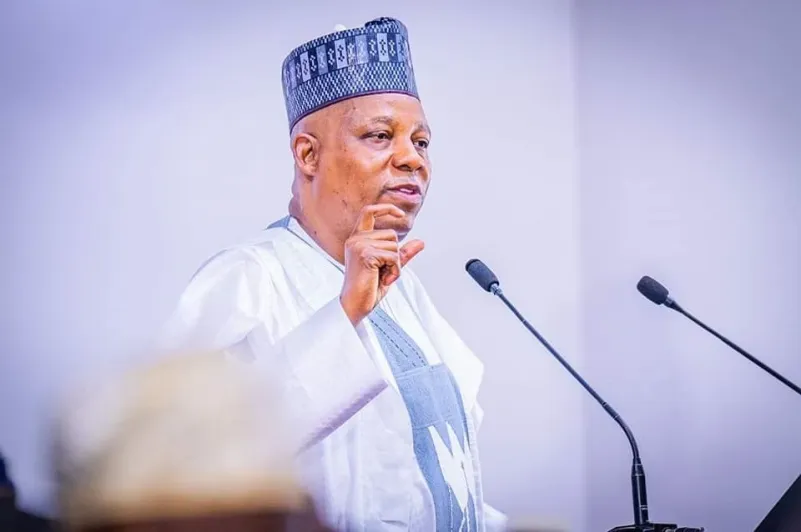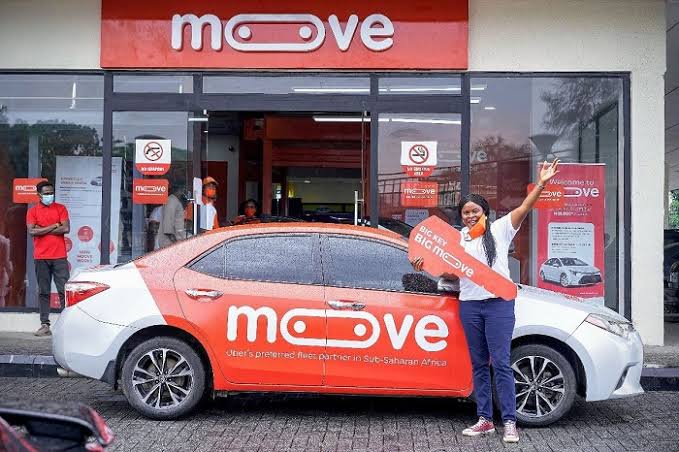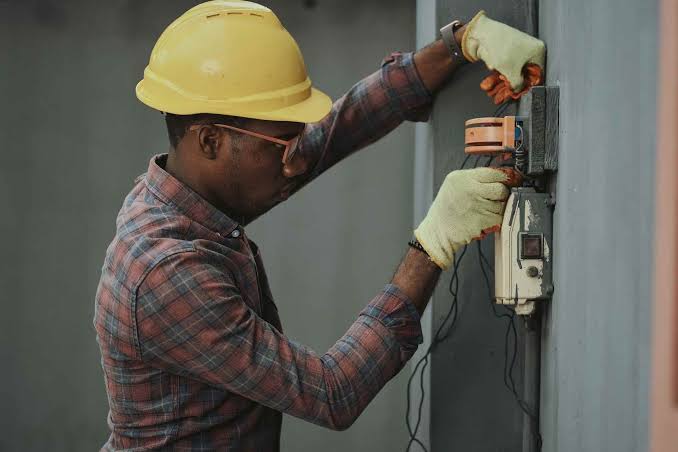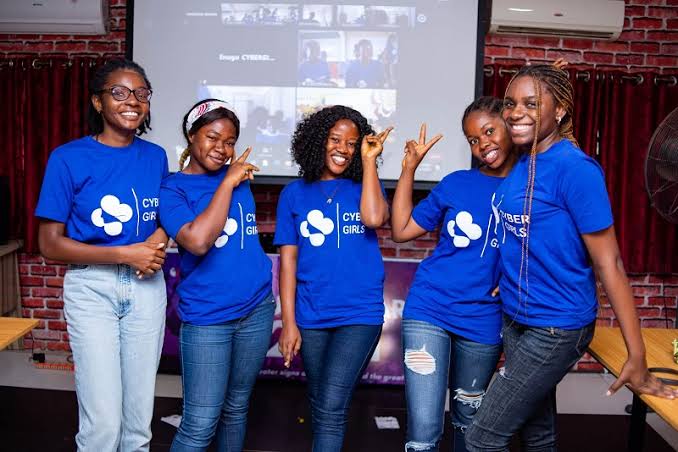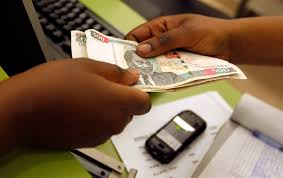Global socioeconomic development, industrial expansion, and people’s daily ability to live comfortably depend on electricity. In Africa, having inexpensive, dependable power is more than just a need. It serves as a valuable barometer of economic development, a privilege index, and an indication of sound governance.
The truth is that many African nations are still struggling to figure out how to produce and supply power to their people economically and efficiently. About 80 million people in sub-Saharan Africa do not have access to electricity, according to the International Energy Agency. More than half of the people in the area are represented by this.
The problems associated with producing and distributing electricity in Africa are complex. The main problems plaguing the ecosystem are outdated technologies, dependence on non-renewable energy, high rates of electricity theft, estimated billing, a worsening financial crisis in the power sector, and inadequate infrastructure.
Barriers to developing a robust and reliable power sector include political insecurity, economic constraints, and governance issues.
The cost of electricity is very high, and the supply is inconsistent, even in areas where residents have access to it. In Nigeria, for example, the cost of power increased by more than 168%; as of January 2023, the cost of a kWh was N63 ($0.08), up from N23.5 ($0.03) in 2015.
Read also: Nigeria, Germany sign agreement for presidential power Initiative
An examination of 1 kWh of electricity’s cost
Analysing the price of electricity, expressed explicitly in kilowatt-hours (kWh), sheds light on its accessibility and affordability. There are observable trends, even though it is difficult to obtain complete and current data on electricity prices throughout Africa because of different tariffs, subsidies, and market dynamics.
The cost of electricity is comparatively higher in many African nations than in other parts of the world. Factors such as inadequate infrastructure, reliance on imported fuel for power generation and inefficient systems contribute to elevated tariffs, burdening consumers and hindering economic growth.
African countries use a diverse range of energy resources, including oil, gas, coal, hydro, and solar power. Hence, availability and affordability vary widely across the continent.
In this article, we list the top 10 African countries with the cheapest cost of electricity per 1 kWh as of December 2022, according to Statista.
Sudan
Sudan, situated in North East Africa, has developed one of the most extensive power systems in Sub-Saharan Africa. The country predominantly relies on two primary sources of energy: hydroelectricity and thermal generation.
With a current capacity of about 3.5 gigawatts, Sudan divides its energy generation nearly equally, with each category contributing approximately 50% to the total capacity. The hydroelectric power is harnessed from the Nile River through various dams, showcasing the nation’s utilization of its natural resources for energy production.
Additionally, Sudan’s thermal power stations play a pivotal role in catering to the country’s energy demands, showcasing a diversified approach to power generation. Currently, the country has one of the lowest household electricity prices in the continent, at just $0.001 per kilowatt-hour
Ethiopia
Ethiopia, positioned as the Horn of Africa, boasts of an evolving power generation infrastructure. The country has a rich history in energy, dating back to 1889 when electricity was introduced to the imperial palace.
The nation harnesses the potential of its numerous rivers, including the Blue Nile and the Omo River, to generate electricity through various hydroelectric dams. With an installed capacity of 11,146,860 megawatt-hours as of 2016, Ethiopia’s energy landscape emphasises the significance of hydropower in meeting its electricity demands.
Additionally, the country has been exploring other renewable sources, such as wind and solar, to diversify its energy mix, indicating a forward-looking approach toward sustainable energy solutions.
With an electricity generation capacity exceeding annual consumption needs, Ethiopia charges households $0.01 per kilowatt-hour, leveraging historical advancements in electricity since its introduction in 1889.
Libya
Libya, situated in North Africa, has a noteworthy electricity generation setup. As of 2016, the country generated a substantial amount of electricity, precisely 34,244,680 megawatt-hours, effectively exceeding its annual consumption requirements.
Libya’s power generation is mainly from non-renewable sources, particularly fossil fuels like oil and gas, which play a pivotal role in meeting the nation’s energy needs.
This reliance on traditional fossil fuel sources is a characteristic feature of Libya’s energy landscape, and despite having an abundance of sunlight, solar energy hasn’t been as extensively integrated into the national grid.
The country’s electricity infrastructure primarily revolves around thermal power plants, utilising its rich oil and gas reserves to fuel its energy production. Offering household electricity at a similar cost of $0.001 per kilowatt-hour, Libya generates substantial electricity, covering more than its annual consumption needs.
Zimbabwe
Zimbabwe’s power generation primarily relies on hydropower and coal-fired generators. The nation has one central hydropower plant and four coal-fired generators, collectively contributing to a total combined capacity of 2,240 megawatts (MW).
However, despite these power generation assets, only around 79.9% of Zimbabwe’s population has access to electricity, highlighting some challenges in ensuring universal electricity access.
The country’s infrastructure mix is a blend of renewable and non-renewable sources, but improvements in expanding access and diversifying the energy mix remain pivotal for Zimbabwe’s energy security and socio-economic development.
Despite limited access to electricity for its population, Zimbabwe maintains a competitive rate of $0.01 per kilowatt-hour.
Angola
Angola, a major oil-exporting country and a member of OPEC, possesses a diverse energy mix. Its installed capacity is estimated at 5.6 gigawatts (GW), of which 4.5 GW is available.
Approximately 68% of Angola’s energy comes from hydropower sources, with another 31.3% sourced from various fossil fuels and a minor percentage (0.7%) derived from a hybrid of solar and fossil fuels. Despite its significant energy potential, Angola faces challenges in fully harnessing its energy resources to meet the demands of its population and industrial sector.
The country aims to expand and modernise its energy infrastructure to enhance electricity access and support economic growth. A significant oil exporter, Angola’s households pay $0.03 per kilowatt-hour for electricity, utilizing a diverse energy mix primarily comprising hydropower.
Zambia
Located in southern Africa, Zambia has significant hydropower resources. Households pay $0.03 per kilowatt-hour for electricity, which is relatively low compared to other African countries.
Its electricity generation primarily relies on hydropower, drawing from the abundant water resources of the Zambezi River and its tributaries. The nation boasts one of Africa’s largest hydropower stations, the Kariba Dam, which contributes significantly to its energy grid.
Additionally, the country operates several smaller hydropower plants and has initiated plans to diversify its energy sources by investing in solar, wind, and thermal power projects. Despite these efforts, Zambia often faces challenges in maintaining a consistent power supply due to a combination of factors, including inadequate infrastructure, fluctuating water levels affecting hydropower, and insufficient investment in alternative energy sources.
Nigeria
Nigeria is the largest economy in Africa and has significant energy resources, including oil and gas. However, the country has been facing significant challenges in the electricity sector, including power outages and low electrification rates in rural areas.
Nigerian households pay $0.03 per kilowatt-hour for electricity, which is relatively low compared to other African countries. The country generates most of its electricity from gas and hydropower.
Egypt
Egypt is the most populous country in North Africa and has a well-developed electricity sector. The average cost of 1 kWh of electricity in Egypt is $0.03, one of the lowest in Africa and the same as Nigeria. The country generates most of its electricity from natural gas, followed by oil and hydropower.
The country currently generates electricity well beyond its annual consumption needs.
Algeria
Algeria is the largest country in Africa and has significant energy resources, including oil and gas. The average cost of 1 kWh of electricity in Algeria is $0.04, which is also one of the lowest in Africa.
Algeria’s electricity generation primarily relies on natural gas and oil, which account for a significant portion of the country’s energy mix. The nation possesses substantial reserves of natural gas and oil, making them readily available sources for power generation. Hydroelectric power also contributes to the electricity grid but to a lesser extent than fossil fuels.
Ghana
Ghana’s electricity generation combines hydroelectricity, thermal, and renewable energy sources. The Akosombo Dam, situated on the Volta River, is a primary hydroelectric power plant that supplies a substantial portion of Ghana’s electricity.
Other hydroelectric dams, including Bui and Kpong, contribute to the country’s power generation. Thermal plants, often powered by oil, gas, or diesel, complement the energy mix, providing electricity during periods of low water levels or high demand. Ghana has also made strides in renewable energy, particularly with solar and wind power projects, aiming to diversify its energy sources and reduce dependency on traditional fossil fuels.
Despite efforts to expand its energy infrastructure, challenges such as irregular power supply due to insufficient capacity and funding constraints persist in Ghana’s energy sector. With hydro and thermal generation as primary sources, Ghana exports power to neighboring nations but charges households $0.07 per kilowatt-hour due to infrastructure challenges.
Nigeria’s Zungeru power plant ready to generate 700MW
An overview of African electricity costs
The cost-effectiveness of electricity varies amongst African countries based on infrastructure, energy sources, and regulatory frameworks. Some countries struggle to give their citizens access to reasonably priced electricity, while others offer electricity at low prices.
These discrepancies highlight the urgent need for infrastructure improvements, sustainable energy solutions, and sensible legislation to guarantee affordable and accessible electricity for everyone on the continent.
The top 10 African nations with the lowest electricity costs per kWh are noteworthy for having abundant energy resources and significant recent investments in renewable energy.
These nations can lead Africa’s transition to a low-carbon economy and a sustainable energy future.

